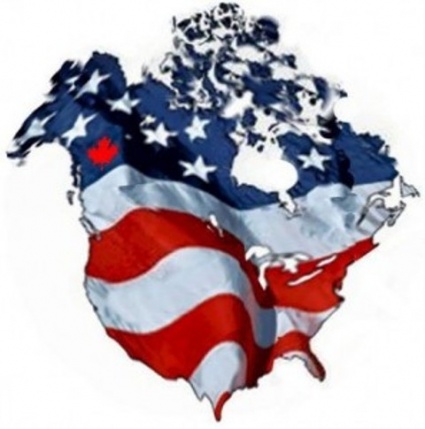November 21, 2012
Are we Canadians the 51st American state?

The final chapter of Yves Engler's The Ugly Canadian sums up Canada's role in the world today as America's errand-boy and PM Harper's government as a right-wing, militaristic, ideologically and theologically driven outfit always ready to look after the interests of powerful corporations in particular and the rich in general.
Engler piles detail on detail, often in convincing fashion, as for example in his analysis of what the tar/oil sands are doing to the environment and to Canada’s reputation on the one hand and of how Canada is putting all of its influence into defending the industry wherever it faces real or potential criticism. Ditto on Canadian mining interests around the world.
While Engler is right on U.S. and Canadian reluctance to abandon Mubarak in Egypt, he is not successful in making the same case in Tunisia. His quotes there simply illustrate the standard diplomatic jargon. And in Bahrain, rather than the U.S. and Canada being in support of what the regime was doing, they were rather unhappy, feeling stuck supporting the royals, the U.S. to protect its naval base there and Canada as the U.S. camp follower.
Engler charges that Canada and the U.S. “tacitly supported the Saudi invasion of Bahrain.” Rather, it appears that the invasion was an embarrassment. The Canadian-made LAV’s (General Dynamics, London, Ontario) were photographed leading the way in. But the sale of military hardware to the Saudis continues, full speed ahead, for two reasons. First, business is business. Second, Saudi Arabia plays a vital role in American geopolitics.
One matter not addressed in Engler’s examination of the situation in Bahrain is where the non-citizens fit in. We know that there is conflict between the Sunni rulers and their Shia subjects, but most people in the country are immigrant workers and non-citizens. Their role in developments is yet to be clarified. We do know that the royals have enrolled Sunnis from the Indian subcontinent into the Bahraini police force, and that these police have not been gentle with protesters.
Engler’s lack of subtlety comes in to play in his examination of the role of the Palestinian Authority—a police arm of the Israeli government to control the Palestinians, he charges. While in many cases this is the effect of its actions, the strategy is clearly quite different. The application for non-member status in the UN General Assembly is part of a plan to wage lawfare against Israel, making it possible to bring cases before the International Court. And P.A. Prime Minister Salam Fayyad participated personally in demonstrations against the path of the separation wall in Bi’lin. Hamas has chosen a different strategy, but it is hardly convincing that that strategy has proven more promising, especially considering the present situation in Gaza.
He fails to make the case in his dismissal of the work of the Special Tribunal for Lebanon, especially since those charged have not been apprehended and tried. Who killed Premier Rafik Hariri? Hezbollah had a motive, as Hariri led the government they opposed. His suggestion that it might have been Israel is wild speculation, as Israel would hardly like to see Hezbollah replace Hariri in power in Lebanon.
Then there is his analysis of Iran. The fact that imperialists claim that Iran is trying to produce nuclear weapons is not evidence that such is not the case. Noteworthy is that, with all their oil resources, they do not focus on production of refining capacity. When he notes that Iran responds to complaints about human rights violations with charges about Canadian violations, Engler cannot be taken seriously. What is the Canadian equivalent of the arrest of Canadian news photographer Zarah Kazemi, her imprisonment, torture, rape, and murder while in custody? And the guilty parties have not been brought to justice. Kazemi’s treatment is not unique.
One interesting and important fact that Engler points to is the Harper government’s active effort in establishing military bases in Africa and Asia. That was something we learned.
In spite of shortcomings, this is an important book.








